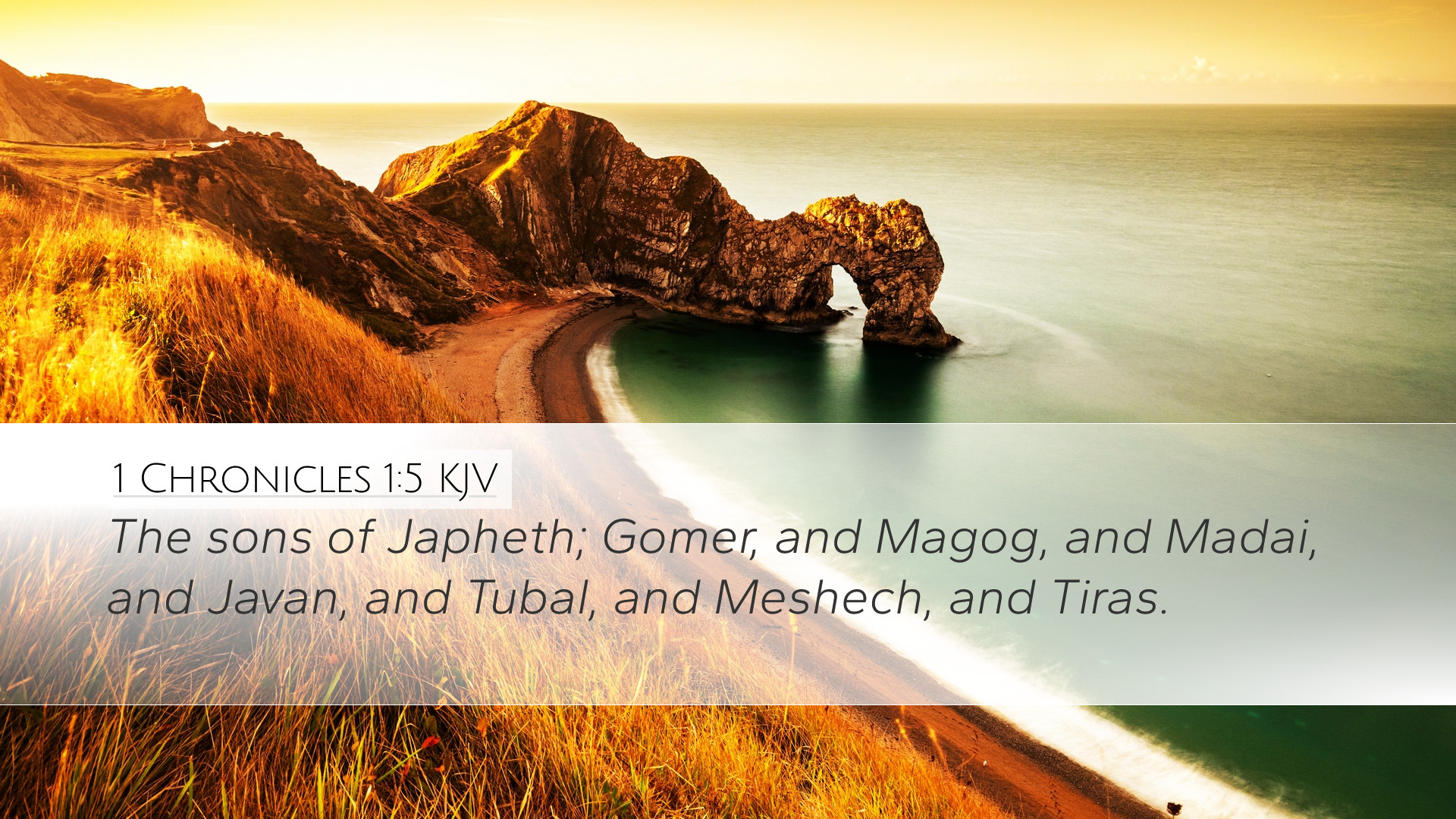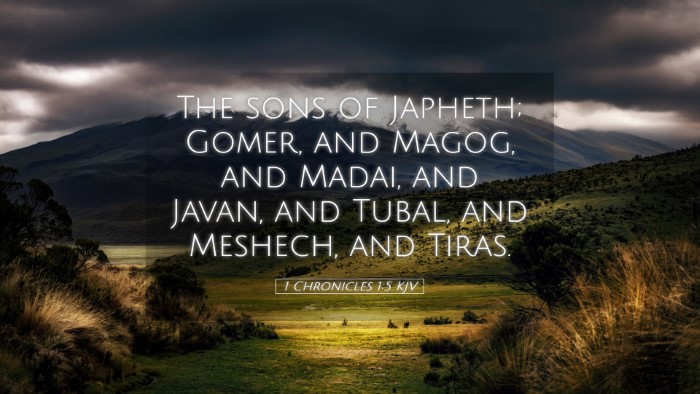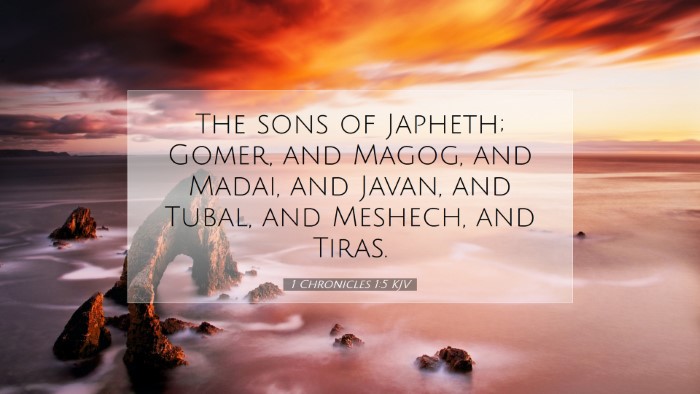Commentary on 1 Chronicles 1:5
Verse Reference: 1 Chronicles 1:5 - "The sons of Japheth: Gomer, Magog, Madai, Javan, Tubal, Meshech, and Tiras."
This verse belongs to a genealogical listing, establishing the lineage of the descendants of Japheth, one of the sons of Noah. This passage is critical as it lays the foundation for understanding the nations and peoples that descended from Japheth, which have significant implications for biblical history and the unfolding of God’s plan through these lineages.
Exposition and Significance
The Genealogy in 1 Chronicles has dual purpose—it both affirms God’s sovereignty in human history and highlights His faithfulness to His covenant with Noah after the flood. The descendants of Japheth are believed to represent various peoples historically documented as occupying the regions of Europe and parts of Asia.
1. The Sons of Japheth
Japheth’s lineage is particularly noted for geographical and cultural significance. The names listed within this verse are believed to correspond to various nations and cultural groups:
- Gomer: Traditionally identified with the people of the Cimmerians, it is likely linked to various tribes in Europe.
- Magog: Often associated with nations from the north of Israel, possible connections to Scythian tribes.
- Madai: Thought to represent the Medes of Persia.
- Javan: Associated with the Greeks and the broader Hellenic world.
- Tubal: Likely linked to groups connected with commerce, possibly the region of modern Turkey or surrounding areas.
- Meshech: May correspond to the Moschi, inhabitants of parts of Anatolia.
- Tiras: Considered by some as a nomenclature for the Thracians.
2. Theological Implications
The list of Japheth's descendants illustrates not merely family heritage, but God’s providential orchestration of nations. As the historian demonstrates the flow of humanity from a biblical perspective, it serves to humble human pride and sovereignty. Each name embodies the fact that God's purpose transcends cultural and ethnic boundaries, revealing a glimpse of His inclusive plan of redemption.
Matthew Henry’s Perspective
Matthew Henry elaborates on the significance of genealogies. He points out that while the genealogical records may seem tedious, they serve an important theological function: they demonstrate God’s covenantal faithfulness. Japheth’s descendants, through their geographical importance, illustrate how God’s creation and overarching plan extend to all nations.
Albert Barnes’ Insights
Albert Barnes emphasizes the historical context of these names. He notes that understanding who these descendants refer to helps in tracing the historical interactions of these cultures with Israel. It also provides a basis for studying ancient history as revealed in scripture, showing how God uses various nations in His redemptive narrative.
Adam Clarke’s Commentary
Adam Clarke highlights the importance of knowing these names relative to the descendants’ geographical and cultural influence. Clarke often correlates the biblical names with their historical occurrences, enriching the understanding of biblically-rooted anthropology. He reminds readers that even these less remembered names hold a significant purpose in biblical history.
Conclusion
The genealogy of 1 Chronicles stands as a testament to God's intricate work throughout history. The mention of Japheth's sons serves to reveal God's ongoing plan for humanity and the development of nations. Understanding this verse not only expands the reader's historical horizon but also deepens the appreciation for God's faithfulness and sovereignty in human history.
As pastors, theologians, and students of the Word delve into this passage, it becomes clear how these genealogical records interweave to reflect God’s grand narrative, culminating in the universal call to salvation offered through Jesus Christ. It is a reminder of the unity of mankind, the diversity of cultures, and the eternal purpose that binds them all in God's design.


